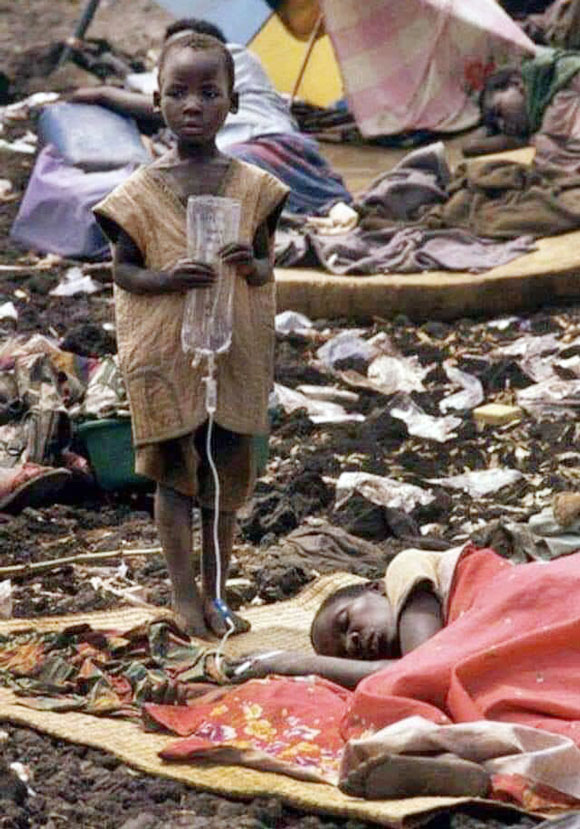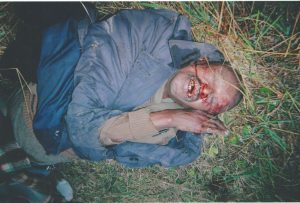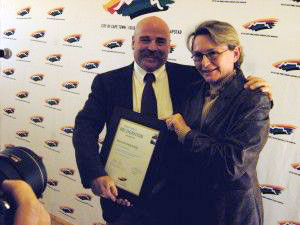
When the Koskys first came to Africa, the most common activity among the Xhosa was soccer. But now, funerals are the biggest social events. The primary cause of death is AIDS. It is estimated that 48% of the Xhosa have HIV or AIDS.
For years, the mission prayed that there would be help with the fight against HIV/AIDS. Despite the fact that the international community was doing research and holding conferences and symposiums on HIV/AIDS, little was being done to help the local Africans directly. The ministries were doing so many funerals every day that there was little time to share the hope of Christ with those who were dying. It seemed as if all the mission could do was pray.
In 2002, while Kelly was praying, the Lord seemed to say to him, “Do something about AIDS!” Given that he had no medical background, Kelly didn’t know what to make of this directive. Later, he received a vision to build an HIV/AIDS hospital, but he did not feel that he was capable of undertaking such a huge project. But the Koskys have always believed that “when your vision is so big that it scares you, then you know that it is from the Lord.” Trusting God for guidance and provision, Kelly and Kathy proceeded with the HIV/AIDS project.

In 2003, a large plot of land in the middle of Khayelitsha (the largest Xhosa township in Africa, with approximately one million inhabitants) was given to the mission. Shortly after that, the Lord connected the mission with an American Christian who joined the Koskys in praying for and raising the resources needed to build the medical facility. As a result, Southern Cross Ministries (SCM) was established to minister to those afflicted with HIV/AIDS.
The following year, the Lord provided the resources to construct the facility, which would focus on AIDS prevention, counseling, care, testing, and treatment, including antiretroviral distribution.

In 2005, the current minister of the Western Cape and the director of the Department of Health joined with the US ambassador and Kelly to officially open the project. Currently, the HIV/AIDS project ministers to over 78,000 impoverished black Africans annually. In addition, it is a model of one of the nation’s leading HIV/AIDS centers.
The Department of Health has contributed to the efforts of SCM. Southern Cross Ministries is hoping that someday an NGO or the government will assume responsibility for this medical facility and take it to a higher level of effectiveness. SCM is a registered nonprofit organization, in compliance with the regulations of South Africa. Kelly remains its resident director.
